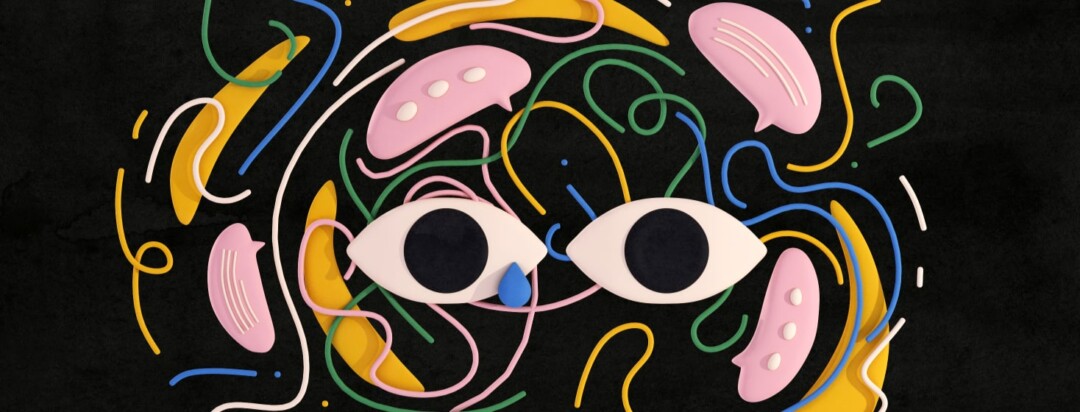My Eyes Have Stabilized
The ongoing question that went through my mind daily was, "Will my eyes ever go back to normal again?"
Whether it was a whisper to myself or a desperate plea to the higher powers, it was always there. I have never heard from anyone who struggles with thyroid eye disease (TED) say they accept their bulging and distorted looking eyes.
But I will speak for myself. I was a chronic complainer, even if it was most often only to myself.
Challenges that came with thyroid eye disease
With thyroid eye disease, we are tasked to not only accept our new and concerning appearance, but to learn how to communicate without our eyes. Our eyes are fundamental in communication.
In public speaking, one of the most basic concepts we learn is eye contact. For example we use eye contact to emphasize the importance of a particular message. We learn to scan the room and then look at individual listeners. We know that our facial expression which is primarily the eyes, should mirror the emotion of our message. During job interviews you may not be considered a strong candidate without a firm handshake and direct eye contact. In casual conversations we will lose our listeners if our eyes stray nervously to things around us.
I remember vividly how difficult conversations were for me when my eyes ached and were out of focus. It took a lot of discipline to keep my eyes in the conversation. It was fatiguing and sometimes felt too difficult to keep trying.
I was right there with my TED community, desperately wondering if my eyes would ever go back to normal. Finally, I am here to say that normal can be achieved!
This or That
Has your TED stabilized?
My eyes have stabilized
After 3 years of the active phase and 2 years of surgeries I have my eyes back!
At my last appointment, my TED specialist sat down in front of me to check my stubborn eyes and discuss what would be our next action plan for them... but instead he said with a little surprise in his voice "Your eyes look good. Your eyes have stabilized!"
Three months ago we had agreed to give the lid of my right eye one more chance to come down. If it continued to be stubborn I would need a fourth tarsorrhaphy procedure done. Although this is a simple procedure of a stitch or 2 in the outside corner of the eye, it does feel uncomfortable. I was not looking forward to it.
Once he said my eyes had stabilized, I realized I had quit observing my wider right eye in the mirror. I also realized my eyes no longer dominated my thoughts. I was living almost as if I did not have thyroid eye disease. (There will always be the tear drops and sun avoidance.)
The lives of people with Graves' disease and thyroid eye disease are full of appointments with our team of doctors. We are closely monitored by our endocrinologists, our TED specialists, our general practitioners and more. We keep up with more appointments for CT scans, MRI's and blood work and the list seems endless.
As we wait and wonder if our eyes will really look normal again, many of us go through multiple treatments and surgeries. It is no wonder that life becomes all about our eyes. As thankful as I have been for my strong team of doctors I am relieved knowing I can back off on many of these appointments.
Going forward I will always take preventive measures for the health of my eyes. I will continue to use the tear drops during the day and the gel drops at night. TED has left me with dry eyes. This means avoiding ceiling fans and direct exposure to air conditioning and wind.
I know this but the reality is that anyone looking at me are no longer wondering if they should ask what is wrong with my eyes or politely avert their own eyes.
There is hope
I know many of our TED peers feel overwhelmed and discouraged about this unhealthy journey. The timeline from the onset of TED to recovery is different for everyone. I am here to give you hope.
My wish for all of you is that one day you will suddenly notice you are no longer consumed with how to live around your eyes and are simply enjoying your day.
Community Poll
What type of images are most helpful to you?

Join the conversation